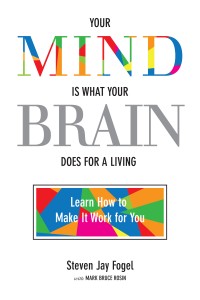How Organizing Principles and Acts Are Related

The more clearly I understood my Organizing Principles, the more clearly I saw how they relate to my acts. For example, my Organizing Principle “I’m not qualified to handle painful situations. That takes a real adult, and in my inner world I’m still a vulnerable kid” is the basis for my act, “Poor me, the boy whose father died when I was eleven, who needs your help, and you’re bad if you don’t help me.”
My Organizing Principle “I must stay in control to be safe” is integrally tied to another act I developed, “You can’t stop me if I think I’m right,” which I go into to take control of a situation. (I named this act after my belief “You can’t stop me if I think I’m right,” which I described in Chapter 4 as coming from my childhood experience of opening the door of our moving car so I could free the strap of my portable radio, flying out onto the highway and surviving.) My Organizing Principle “The world isn’t safe; don’t trust” is also tied to my “You can’t stop me if I’m right” act because it’s the belief that I can’t trust the world to be safe that makes me try to seize control.
The last Organizing Principle on my list, “I’m a good guy and I never hurt anyone unjustly,” is the basis for another of my acts, “Mr. Cleanhands,” which tells people that I’m a good guy who did nothing wrong (and, therefore, I shouldn’t be thrown out of the tribe). Unfortunately, this act robs me of the ability to hear other people, specifically to learn about hurts and problems that I might be responsible for, albeit inadvertently, and to grow as a result of their feedback.
Like our acts, our Organizing Principles can be inconsistent and in conflict with each other. When they are, if we allow them to operate on automatic, they can trap us in a bind that offers no escape and blocks progress toward our goals. For example, my Organizing Principle “Eventually, loving others will make things work out” states that no matter how painful the situation, if I hang in there and keep loving the other person, I’ll finally get the love and closeness I crave. But this belief is in direct conflict with “The world isn’t safe; don’t trust,” “No one will take care of my needs but me,” and “If they really loved me, they’d never put me in an uncomfortable position.”
How can I be close to anyone if I don’t trust them, if I feel they can never take care of my needs, and that if they loved me, they’d never ask me to do something that makes me uncomfortable? These beliefs confine me to mistrusting the very people I want to love and want to love me. These beliefs also confine me to seeing my own discomfort in a situation as being the other person’s responsibility instead of my own! With these Organizing Principles, it’s no wonder that I longed for closeness without experiencing what I craved.
An excerpt from my recent book, Your Mind Is What Your Brain Does for a Living, now available at Amazon.
- 6 Nov, 2014
- Posted by Steve Fogel
- 0 Comments



COMMENTS